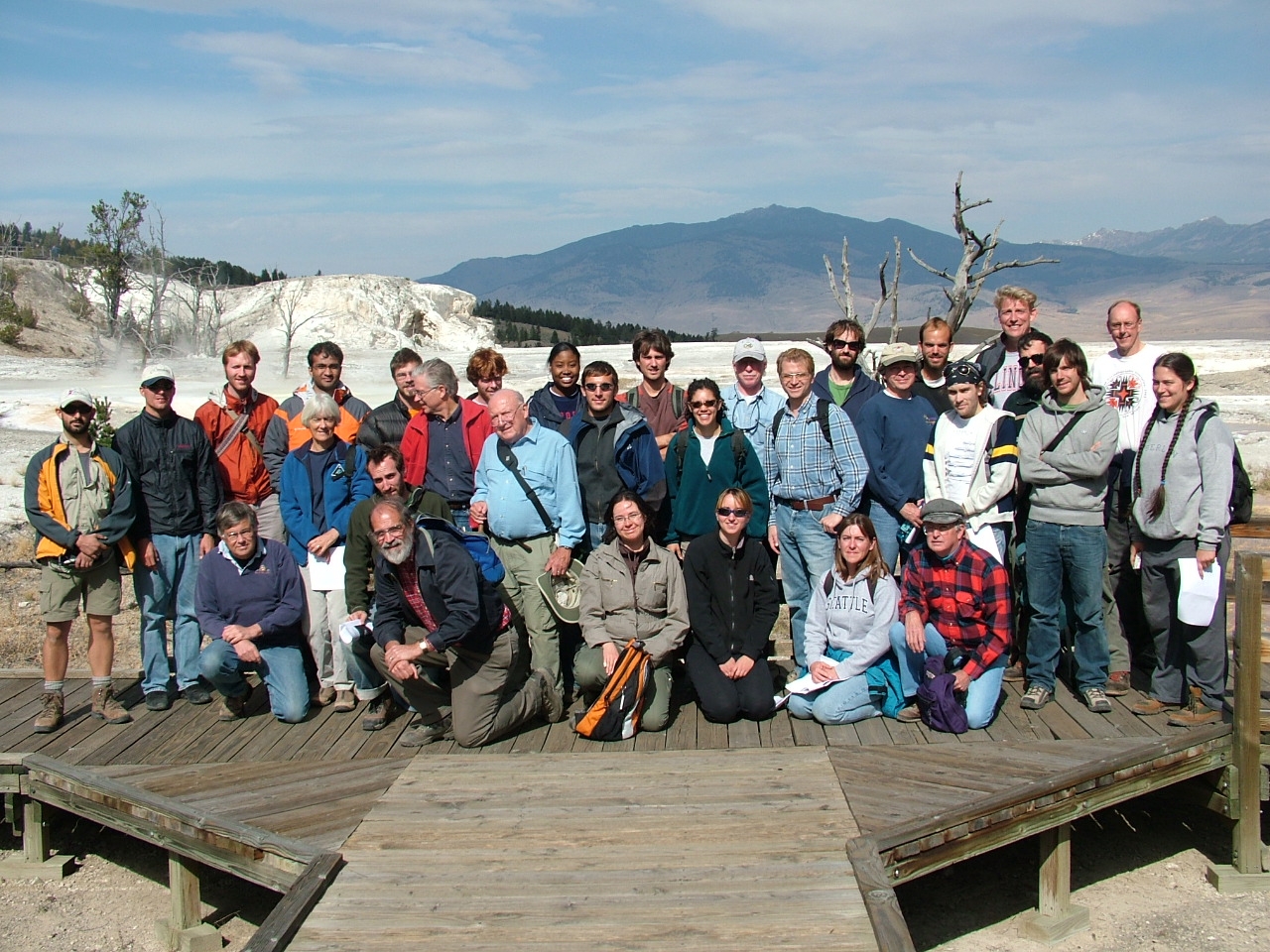Outreach Highlights
University of Washington Astrobiology Students Join TBI in Yellowstone
The Thermal Biology Institute’s most important resource is our scientific community,
composed of faculty, postdoctoral scientists, graduate and undergraduate students
and strong technical support and facilities. TBI takes an active interest in promoting
and assisting tomorrow’s scientists, and to this end TBI recently hosted a workshop
in Yellowstone National Park for graduate students and faculty members from the University
of Washington’s Astrobiology program.
Over three nights and two days, a group of thirty graduate students and faculty from
the University of Washington toured Yellowstone, learning about thermal biology and
how to recognize bio-signatures in strange and conventionally hostile environments.
TBI faculty members Bill Inskeep and Tim McDermott led tours of Norris Geyser Basin,
detailing their work on the role of microbes in transforming metals and gases that
flow from Yellowstone’s hot springs. They emphasized how such research is generating
information that could be used for identifying biomarkers useful for recognizing evidence
of life (past or present) on other planets.
TBI’s Mark Young took students to Monument Geyser Basin to tell them about the viruses
that prey on microbes in these environments, and how these ubiquitous viruses can
be used to study their hosts, while MSU faculty member Dave Mogk explained Yellowstone’s
geologic history. During the evening sessions, TBI scientists Brian Bothner, Martin
Lawrence, John Peters, and Trevor Douglas presented their research in evening sessions.
Professor Bruce Fouke from the University of Illinois was a special guest of the
TBI, brought in to discuss his work in Yellowstone, where he has discovered that microorganisms
play a significant role in the construction of the famous and instantly recognizable
Mammoth terraces. Professor emeritus Richard Castenholz, from the University of Oregon
was also a special guest of the TBI. He provided both classroom and spring-side lectures
about the phototrophic microbial mats of Octopus Springs, and shared some of the colorful
history behind his years of research in Yellowstone. MSU astronomer Neal Cornish
ended the weekend workshop by taking a look at the big picture, with a presentation
on the Big Bang and the formation of the universe.
The workshop was very successful and, as they left Montana, several of the University
of Washington graduate students were already making plans to return to Yellowstone.

The University of Washington Astrobiology group, along with TBI researchers, explores Mammoth hot springs.
